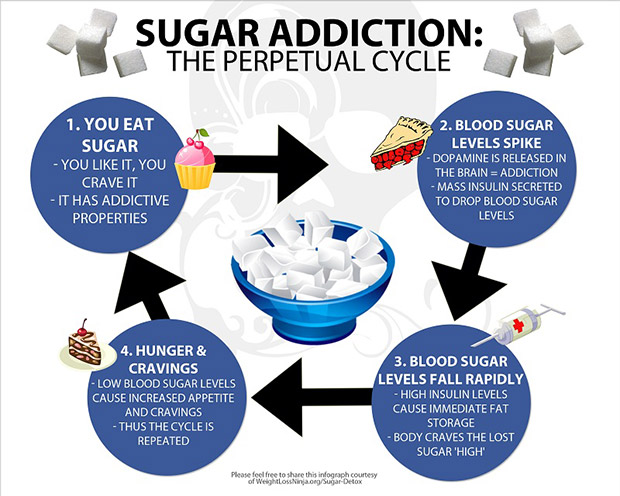Sugar Through the Ages

- Apr 13, 2023 modified: Jan, 24 2025
Sugar Through the Ages
Uncovering the Cultural Significance and Its Global Impact
Who doesn't like a nice sweet treat after a long day?
We have sugar to thank for all these treats that we indulge in either as a celebration or just as a random treat.
Sugar has become an important part of our daily lives, and we've forgotten how much different it was decades ago.
From its humble beginnings as a luxury item reserved for the wealthy elite to the widespread consumption we see today, sugar has played a big role in shaping cultures and economies around the world.
But what is the true impact of this sweetener on our modern-day lives?
In this article, we'll be tackling how it has transformed from being a rare commodity to a staple ingredient in our diets.
Let's also go through the cultural significance of sugar across different societies and uncover how it has impacted global trade and economics.
So, whether you're a sugar lover or simply curious about the world around you, keep on reading!
The cultural significance of sugar in different societies
Sugar has been a cultural symbol of wealth and status for centuries.
In ancient times, sugar was considered a rare luxury item reserved for the wealthy elite.
The oldest known account of humans using sugar for food dates back to ancient India, where sugarcane cultivation and the extraction of sugar from it have been documented as early as the 5th century BC. Sugar was so rare that it was often used as a form of currency.
As sugar production became more widespread, it became a symbol of hospitality and generosity. Eventually, it was incorporated into a lot of religious and cultural practices:
- In Hinduism, sugar is used as an offering to the gods during religious ceremonies.'
- In Jewish tradition, sugar is used to sweeten the traditional Passover meal.
- In African cultures, sugar is used in traditional healing practices, as it is believed to have medicinal properties.
- In European traditions, sugar was considered a status symbol, such as sugar art created to impress guests at banquets and other social events.
Despite the social and economic changes that have occurred over time, sugar continues to be a highly valued commodity, and its production and trade remain important to the global economy.
The global impact of sugar on trade and economy
Today, sugar remains a significant contributor to the global economy. Sugar is used in a wide range of industries including food and beverage manufacturing, pharmaceuticals, and even cosmetics.
Brazil is the world's largest producer of sugar, followed by India and the European Union. Sugar production and exportation are major sources of revenue for many developing countries, including Cuba, Haiti, and the Dominican Republic.
However, the sugar industry has also been criticized for its impact on the environment and human rights.
Back in history, European powers established sugar plantations in the Caribbean and South America, relying on enslaved Africans to work the fields. The slave trade and exploitation of indigenous peoples continued until the abolition of slavery in the 19th century.
Other issues arise in modern times where sugar production has been linked to deforestation, water pollution, and the displacement of indigenous communities. The industry has also been accused of exploiting workers and violating human rights.
The dark history of sugar and its connection to slavery and exploitation
The history of sugar production is intertwined with the history of slavery and exploitation. The development of the sugar industry in the Americas relied heavily on the use of enslaved Africans and indigenous peoples. The conditions on sugar plantations were brutal, with many workers dying from overwork, disease, and mistreatment.
The legacy of slavery and exploitation in the sugar industry continues to this day. Workers on sugar plantations in developing countries are often paid low wages and subjected to harsh working conditions. The industry has also been linked to child labor and human trafficking.
In recent years, there has been increased scrutiny of the sugar industry and calls for more responsible and sustainable practices. Some companies have committed to sourcing sugar from responsible and ethical producers, while others have invested in programs to improve working conditions and protect human rights.
Labor exploitation remains a significant problem in the production of sugar, with many workers being subjected to poor working conditions, low wages, and other exploitation forms. It is important for governments, companies, and consumers to take steps to address these issues and promote fair and ethical labor practices in the industry.
The health effects of sugar consumption
Despite its cultural significance, sugar consumption has also been linked to social issues such as obesity, diabetes, and heart disease.
The World Health Organization recommends that adults consume no more than 6 teaspoons of sugar daily, but the average American consumes more than 17 teaspoons of added sugar daily.
Consuming too much sugar can have negative health effects on the body. Here are some of the things you should look out for:
- Obesity: Excess sugar is converted to fat in the body, which can lead to weight gain over time.
- Type 2 Diabetes: Too much sugar over time can lead to insulin resistance, which increases the risk of developing type 2 diabetes.
- Heart Disease: Excess sugar leads to high levels of triglycerides, which can contribute to the development of heart disease.
- Tooth Decay: Bacteria in the mouth exacerbated by sugar produce acid that erodes the tooth enamel.
- Mood and Energy: Energy levels can plummet after excessive sugar consumption, which can negatively impact mood and cognitive function.
Note that not all sugars are the same. While natural sugars in fruits and vegetables are generally healthy in moderation, added sugars in processed foods and drinks should be limited.

Soda Science tells the story of how industry leader Coca-Cola mobilized allies in academia to create a soda-defense science that would protect profits by advocating exercise, not dietary restraint, as the priority solution to obesity, a view few experts accept.
Sugar alternatives and their benefits
As awareness of the health risks of sugar consumption has grown, many people have turned to sugar alternatives.
- Natural Sweeteners: Honey, maple syrup, and agave nectar are popular choices, as they are perceived as healthier alternatives to refined sugar.
- Artificial Sweeteners: Aspartame and sucralose have also become popular in recent years as they are calorie-free and are safer on blood levels.
Sugar alternatives can be a useful tool for reducing sugar intake, but they are not a magic solution.
Some sugar alternatives can still have an impact on blood sugar levels. It's also important to consume them in moderation as part of a balanced diet.

Protein can help lower the Glycemic Index (GI) of a meal.
Protein can also slow down stomach emptying and the rate at which carbohydrates are digested and absorbed.
The role of sugar in shaping our taste preferences
The sweet taste of sugar is hardwired into our brains, and many processed foods and drinks are formulated to be highly palatable and addictive.
The overconsumption of sugar can lead to a heightened tolerance for sweetness, making it difficult to appreciate the natural sweetness of fruits and vegetables. This can lead to a diet that is high in processed foods and low in nutrient-rich whole foods.

However, there is hope that our taste preferences can be changed. By reducing our intake of sugar and consuming more whole foods, we can retrain our taste buds and develop a preference for healthier foods.

Sugar from fruit is different than added sugar in foods
Conclusion and reflection on the complex nature of sugar's impact on our world
Sugar is a complex and multifaceted substance that has had a significant impact on our world. From its cultural significance to its impact on global trade and the economy, sugar has played a pivotal role in shaping our history and shaping our diets.
However, the impact of sugar is not always positive. The dark history of sugar production and the health risks associated with excessive sugar consumption are just two examples of the negative impact of sugar on our world.
As we look to the future, it is clear that there is a need for more responsible and sustainable sugar production practices, as well as a need for healthier and more sustainable sugar alternatives.
By working together to address these issues, we can create a world where sugar is enjoyed in moderation and without harm to our health or the environment.
Search News Articles...
Recent Articles

Keywords no longer as visible in GSC
- Jan 12 2026
- /
- 349

Unique Web Systems Matter in a World of Sameness
- Dec 26 2025
- /
- 259

Most AI Websites Fail to Rank
- Nov 18 2025
- /
- 513

Sitemap.xml Best Practices
- Oct 14 2025
- /
- 2344

Fake Reviews on Google My Business
- Oct 07 2025
- /
- 676

Sending Emails from Code
- Sep 17 2025
- /
- 734

US Tariff Shifts Undermining eCommerce
- Sep 05 2025
- /
- 915

Small Business Success Formula
- Aug 23 2025
- /
- 679

Do Strong CTAs Help or Hurt Your Website?
- Jul 31 2025
- /
- 898

AI Crawlers vs Search Crawlers
- Jul 04 2025
- /
- 1215
View All News Articles
Categories
A Gold Coast SEO and Web Developer